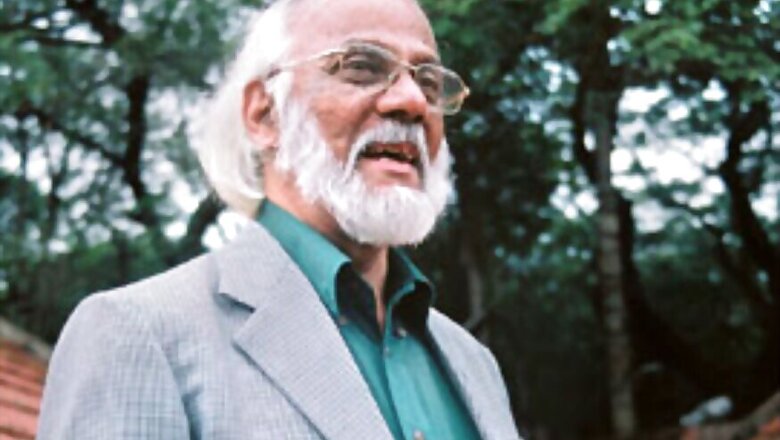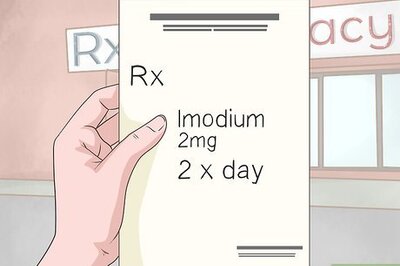
views
In the midst of the growing hype on traditional medicines and science, Dr. Govindarajan Padmanabhan of the Indian Institute of Science, Bengaluru, has researched on circumin, a compound of turmeric, as a cure for malaria and possibly cancer.
He speaks to News18’s Aradhna Wal about his work, the need for clinical trials, and dangers of unfounded claims of Ayurvedic properties of cow urine.
Q. With AYUSH now a separate ministry to supervise traditional medicines, is there support from the government for such work?
A. I haven’t seen much support from the government. My worry is that many claims of cures will get through without evidence or patient data. People are now claiming to cure diabetes and they publish their discoveries in journals only they read. That’s not going to work in the international community. We understand the need for clinical trial and to generate hard-core data and then publish it in something like the Lancet or the National Medical Journal of India.
Q. IIT-Delhi just held a conference on the ayurvedic properties of cow urine and there are claims that it cures cancer…
A. I don’t want to criticise something that I’m not very familiar with. However, where is the hardcore data that this cow urine distillate has generated? Do we know the distillate’s composition, or what makes it so unique? Blind faith can push things through that are not scientifically valid.
Q. Tell us about your research on circumin…
A. Circumin is a compound in tumeric. Normal varieties of the plant have about three to five percent circumin, though there are varieties from the northeast that have 10 percent circumin. We work with pure circumin and have built animal models to see how it works against simple malaria and cerebral malaria. I wanted to see if it was possible to kill the malaria parasite completely in culture with drugs. In simple malaria, either the mice die of infection in seven to eight days, or after initial treatment, the parasite comes in 25 days. This is called recrudescence. In our initial study we used a combination of RT-Ether, which is a derivative of the malaria drug artemisinin, and circumin. With this combination the parasite did not come back at all. Though traces of circumin disappeared from the mice after a day, the effects carried on. It’s probably a immunological mechanism, where circumin has created a memory in the body to fight the parasite. With cerebral malaria, too, with the combination of RT-Ether and circumin, the parasite did not come back, and 95 percent of the mice survived. In the past two to three years resistance has grown to artemisinin, which had reduced malaria by 50 percent globally. Circumin could work as a co-drug to delay this resistance. Traditionally, circumin is known to be non-toxic. IIT Guwahati has developed a database on it, and globally over 100 trials have been done on its effects on cancer.
Q. Then why has it taken so long for clinical trials on your work to start?
A. For decades, every study on circumin has concluded that circumin is beneficial in many cases yet further studies have to be done. It is not yet a drug for any one disease. There is also a certain suspicion of natural molecules in western science. I wanted to establish a disease where circumin can be taken all the way, which is why the research on malaria. I am not a clinician, and according to our rules, only a clinician can apply for clinical trials. However, now we’re going ahead with Indian Institute of Science, the National Institute of Malaria Research, as partners and the pharmaceutical company IPCA, in Mumbai, to make formulations. Phase one is complete, and it proved that the combination of circumin and RT-Ether in normal human volunteers is non-toxic, and now we’re on to the efficacy trial. Circumin is not a synthetic molecule [i.e manufactured in a laboratory] but a phytochemical. The drug authorities have now established a separate channel to monitor its testing. Circumin has shown to reduce toxicity from, the resistance to and the amount of dose required of primary drugs in cancer and in malaria. My theory is that it could prevent drug resistance.
Q. Is there a trend of scientists in India now researching on plants mentioned in traditional medicine?
A. States such as Himachal Pradesh and Kerala have herbs with such wonderful properties that are being used locally. However, nothing has been scientifically validated. Different states then have different herbal extracts, and there is a resistance to testing them in laboratories. Dr. Naveen Khanna [who is developing a dengue drug from a plant mentioned in ayurveda] and I say that we should test these extracts for specific diseases, especially autoimmune diseases. Then, we should compare the results with another group being treated with allopathic medicine, to establish the results. The plants can be used in two ways, isolated molecules or herbal extracts that have been more efficient as they’re a combination of molecules. However, we need to standardise these preparations, go through proper clinical trials




















Comments
0 comment